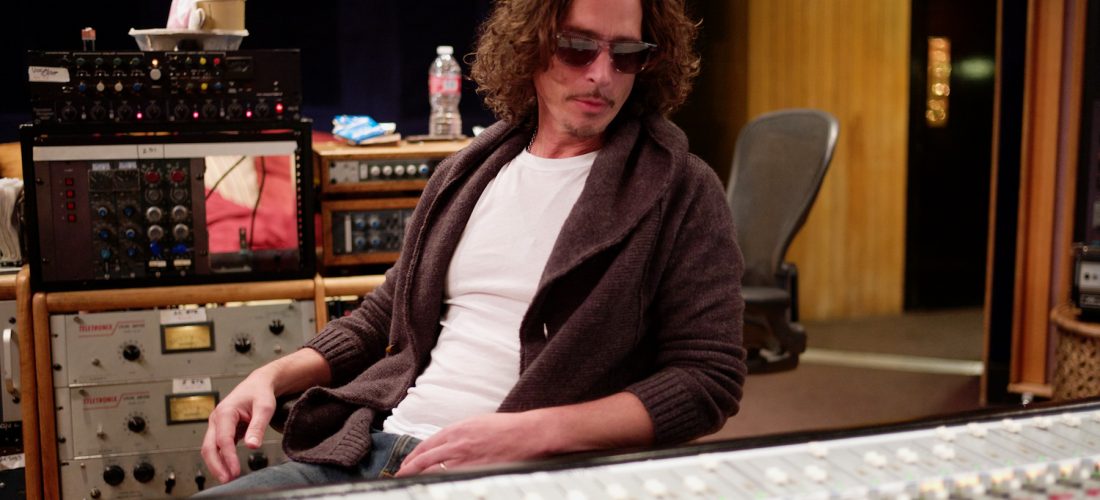Chris Cornell’s Historic Voice and Great Ear Take Center Stage on the Covers LP, ‘No One Sings Like You Anymore’
Artists’ influences are never nearly as interesting as what they do with them. Chris Cornell always thrived at taking well-known songs and making them his own. One of Soundgarden’s earliest recordings was a rendition of Howlin’ Wolf’s steady-grooving, broken-hearted blues “Smokestack Lightnin’,” on which Cornell seemed to find his own anguish in the vocal, hollering, screeching, and howlin’ like he was on his own personal torture rack. And later, when he approached others’ tunes, the song itself wasn’t always the most apparent influence. He variously replaced the lyrics of Black Sabbath’s “Into the Void” with a speech about Native American rights, grungified Devo’s new-wave incel anthem “Girl U Want,” juxtaposed the Metallica and U2 songs titled “One” over each other, and turned “Billie Jean” into a dusty, melodramatic country-rock lament. Cornell’s innovative way of interpreting and presenting music, coupled with a gold-medal multioctave singing range, is what made him a legend.
In the year before his death, he was splitting his time between making new Soundgarden music and working up a collection of cover songs, which is finally seeing the light of day with the title No One Sings Like You Anymore. The track list shows off Cornell’s reliably catholic taste — Prince sits next to John Lennon, Ghostland Observatory alongside Guns N’ Roses — but listening to his interpretations displays his irreverence.
It takes audacity to turn a song like “Get It While You Can” — a gospel-tinged fable by Howard Tate and later a jaunty blues-rock pearl for Joplin — into a practically unrecognizable, squeaky, synthy new-wave number, as Cornell does here. He sings the song soulfully like Tate and belts the chorus like Joplin (and his melisma always deserved as much recognition as Mariah Carey’s), but the shuffling keyboard-heavy arrangement makes it feel like something new. Similarly, it takes guts to attempt a song like GN’R’s “Patience” and turn it into lonely ballad with David Lynchian industrial sighs and weeping acoustic guitar. Even gutsier: He didn’t even whistle.
Cornell, who performed all of the album’s music alongside producer Brendan O’Brien, makes Lennon’s “Watching the Wheels” peppier than the original with an upbeat acoustic riff, and when he sings the lyric, “I tell [people] there’s no problems, only solutions,” he sounds hopeful and not didactic the way Lennon did. He belts ELO’s “Showdown” as if it were “I Heard It Through the Grapevine.” And he gives a Bowie, Blackstar edge to the best song on the album, “You Don’t Know Nothing About Love,” a slow-simmering soul number popularized by Carl Hall that B.B. King turned into a bloated Elvis-style number, with an expressionistic horn arrangement that builds with Cornell’s shrieks.
Not all of the interpretations are as daring. His voice sounds raw and haggard on “Nothing Compares 2 U,” more in the sad-eyed tradition of Sinead O’Connor than weepy Prince, but it’s an instance where a great song will always be a great song, no matter how it’s sung. Even with some electro-rock production, Nilsson’s “Jump Into the Fire” sounds as lightheaded and fantastical as any other cover of the song (except for LCD Soundsystem’s electro-meditation), and Ghostland Observatory’s “Sad Sad City” sounds largely like the original, as if Cornell was trying to figure out why he liked it. Lorraine Ellison’s torch song “Stay With Me Baby” is just as glorious and transcendent as the original — and that’s the way it should be. (Some songs simply shouldn’t be futzed with.)
In a lot of cases, Cornell’s ear is as important as his voice on the album, and an alternate title for the collection could have been No One Hears Music Like You Anymore. Cornell’s family has said that the record is his last fully completed studio album. Although there are still a number of unreleased Soundgarden recordings that are currently the subject of an ongoing lawsuit, it’s likely no one will hear them anytime soon. So until those come out, this compilation is a welcome reminder that Cornell was so much more than his scream.
